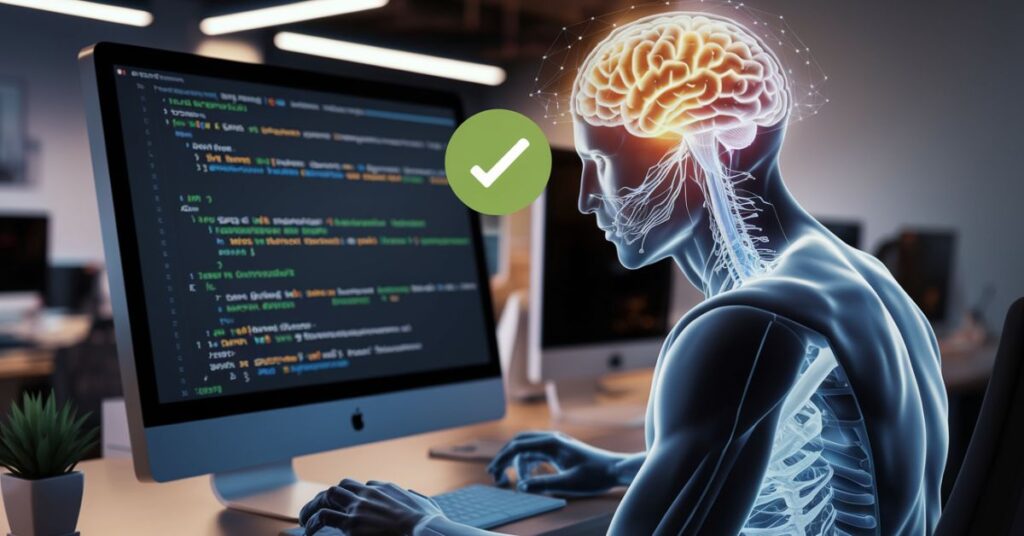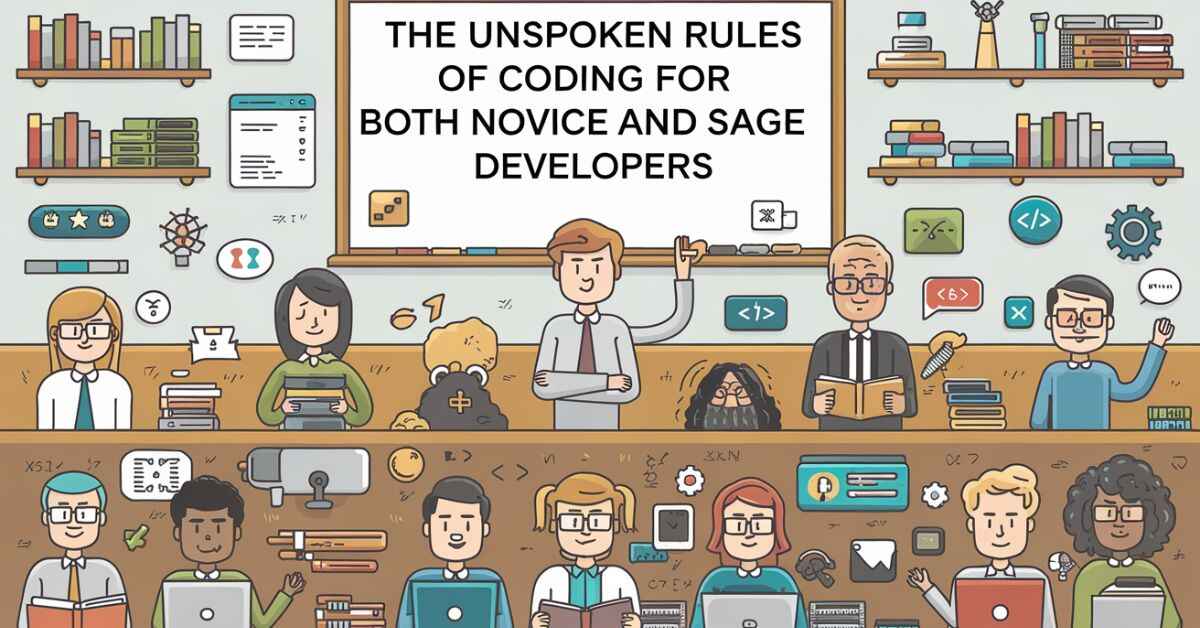In the rapidly evolving landscape of software development, technical prowess alone is insufficient for true success. Coding is an intricate art form that transcends mere syntax and algorithmic implementation.
Developers, both novice and sage, must navigate a complex ecosystem of unwritten principles, collaborative strategies, and continuous learning.
This comprehensive guide unveils the critical, often overlooked strategies that distinguish exceptional developers from ordinary programmers, providing a holistic roadmap for professional growth and software excellence.
Understanding the Foundation of Coding Excellence
Software development is a nuanced discipline that demands more than technical skills. Exceptional coding practices require a multifaceted approach integrating technical proficiency, strategic thinking, and interpersonal capabilities.
The most successful developers recognize that writing code is not just about instructing machines, but about creating elegant, maintainable solutions that facilitate human understanding and collaboration.
Performance Considerations
| Skill Category | Novice Impact | Sage Developer Impact |
| Technical Knowledge | Limited | Comprehensive |
| Problem-Solving | Reactive | Proactive |
| Code Maintainability | Basic | Advanced |
| Collaboration | Emerging | Sophisticated |
Write Code for Humans, Not Computers

Code readability is paramount in professional software development. While machines execute instructions precisely, humans read, interpret, and maintain these intricate systems. Exceptional developers prioritize writing code that tells a clear, logical narrative.
This means selecting meaningful variables, implementing intuitive structures, and creating solutions that are immediately comprehensible to team members.
“Always code as if the person who will maintain your code is a violent psychopath who knows where you live.”
Comments Should Explain Why, Not What
Effective commenting transcends describing code functionality. Instead, comments should illuminate the reasoning, design decisions, and contextual considerations behind complex logic.
A well-crafted comment provides insights into the business logic, potential challenges, and strategic thinking that informed a particular implementation.
Don’t Repeat Yourself (DRY)
The DRY principle is fundamental to efficient coding practices. By eliminating redundancy, developers create more modular, maintainable codebases.
This approach reduces potential errors, simplifies future modifications, and enhances overall system scalability. Centralized, reusable code structures become the hallmark of sophisticated software architecture.
Learn to Fail Gracefully (Error Handling)
Robust error handling distinguishes professional developers. Anticipating and managing potential failures is crucial for creating resilient software. Comprehensive error management involves:
- Providing meaningful user feedback
- Logging critical diagnostic information
- Preventing catastrophic system failures
- Implementing graceful degradation mechanisms
Test Early and Often
Test strategies are the backbone of reliable software development. Implementing comprehensive unit tests and integration tests helps identify potential issues before they escalate. By embedding testing throughout the development lifecycle, developers can:
- Validate code functionality
- Ensure performance reliability
- Reduce long-term maintenance costs
- Improve overall software quality
Refactor Regularly
Refactoring is not a one-time event but a continuous improvement process. Periodic code restructuring eliminates technical debt, enhances maintainability, and keeps software systems flexible and adaptable. Successful developers view refactoring as an essential practice for long-term software health.
Use Version Control Properly
Version control systems like Git are more than backup mechanisms. They facilitate:
- Collaborative development
- Comprehensive change tracking
- Efficient branch management
- Historical code review
Professional developers leverage version control as a strategic tool for team coordination and code management.
Know When to Stop Optimizing
Performance optimization requires judicious application. Premature optimization can introduce unnecessary complexity. The key is to:
- Write clear, functional code first
- Profile and measure actual performance bottlenecks
- Balance optimization with readability
- Prioritize meaningful improvements
Understand Your Tools and Ecosystem
Continuous learning about developer tools, frameworks, and emerging technologies is crucial. Staying informed enables developers to:
- Leverage cutting-edge solutions
- Adapt to industry standards
- Make informed technological choices
Communicate Effectively with Your Team
Successful software development is inherently collaborative. Effective communication involves:
- Transparent documentation
- Meaningful code reviews
- Knowledge sharing
- Open dialogue about challenges and solutions
Don’t Fear Technical Debt—Manage It
Technical debt is inevitable. The goal is strategic management through:
- Prioritizing critical improvements
- Allocating resources for systematic refinement
- Maintaining a proactive approach to code quality
The Path to Continuous Growth
A growth mindset distinguishes exceptional developers. Embrace challenges, remain curious, and view every project as a learning opportunity.
Continuous personal and professional development is the cornerstone of long-term success in the tech industry.
Also Check This: Retro Bowl Unblocked WTF: Experience Classic Football Fun Again
Frequently Asked Questions
What are the unspoken rules of coding?
The unspoken rules of coding encompass writing clear, maintainable code that prioritizes human understanding, follows collaborative best practices, embraces continuous learning, and focuses on solving problems efficiently while maintaining high-quality software design principles.
How do novice developers approach coding differently from experienced ones?
Experienced developers focus on holistic solution design, considering long-term maintainability, system architecture, and team collaboration, while novice developers typically concentrate on immediate problem-solving and direct code implementation without anticipating future complexity or scalability challenges.
Why is readability more important than cleverness in code?
Code readability ensures that other developers can quickly understand, maintain, and modify the software, whereas overly clever code often creates unnecessary complexity that increases debugging time, reduces collaboration efficiency, and potentially introduces unexpected errors in the software ecosystem.
What’s the importance of commenting code, and how should it be done?
Comments should explain the underlying reasoning, design decisions, and complex logic behind code implementation, providing context that goes beyond describing what the code does by illuminating why specific approaches were chosen and potential considerations for future developers.
Why is the DRY principle crucial for developers?
The DRY (Don’t Repeat Yourself) principle minimizes code redundancy, reduces potential errors, simplifies maintenance, enhances system scalability, and creates more modular and efficient software architectures by centralizing common logic into reusable components.
How should developers handle errors in their code?
Effective error handling involves implementing comprehensive mechanisms that provide meaningful user feedback, log diagnostic information, prevent system crashes, anticipate potential failure points, and create graceful degradation strategies that maintain system stability and user experience.
What role do tests play in coding practices?
Tests serve as critical validation mechanisms that ensure code functionality, performance reliability, identify potential issues early in the development process, reduce long-term maintenance costs, and provide confidence in software quality by systematically verifying different aspects of the implementation.
Conclusion
The journey of becoming an exceptional developer transcends technical skills, encompassing a holistic approach to software creation. By embracing these unwritten principles, developers transform from mere code writers to strategic problem solvers.
The most successful professionals understand that coding is an art form blending technical prowess, continuous learning, and collaborative excellence, ultimately creating software that not only functions brilliantly but communicates elegantly with both machines and fellow developers. Continuous growth is the ultimate destination.

SwaggerDiary.com is managed by an experienced team dedicated to delivering insightful articles, engaging content, and valuable resources across various topics.








